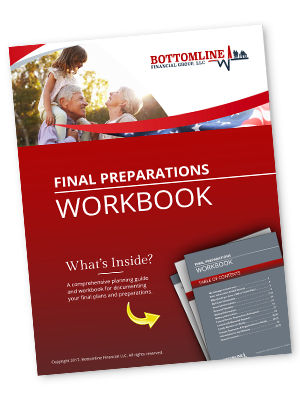
Estate Planning for Success
Why is estate planning so critical? Because, at your death, you leave behind the people you love and all your worldly goods.
Without proper planning, you have no say about who gets what, and more of your property may go to unintended recipients instead of your loved ones. If you care about how and to whom your property is distributed, you need to prepare your estate plan.
Who needs estate planning?
Estate planning is important regardless of your financial situation. In fact, it may be more important if you have a smaller estate because the final expenses could have a much greater impact on your estate. Wasting even a single asset may cause your loved ones to suffer from a lack of financial resources.
Your estate plan may be relatively simple and inexpensive, such as preparing a will to distribute basic accounts and assets and designating beneficiaries for your life insurance policy(s) and retirement account(s). If your estate is larger or you have more assets, the estate planning process may be more complex and expensive. In any case, you’ll probably need the help of professionals, including an estate planning attorney, a financial planner, an accountant, and possibly an insurance professional.
Issues to consider
Your estate plan should be geared to your particular circumstances. Some factors that may impact your estate plan include whether:
- You own real estate, especially if you own property in different states
- You have minor children or children with special needs
- You are married
- You intend to contribute to charity
- Your estate might be subject to estate tax
- You become disabled or incapacitated and are unable to manage your financial affairs
How do you begin planning your estate?
It generally begins with an analysis of what you own. The type of assets and property you own can affect how you plan your estate. Next, formulate goals and objectives for your estate plan. Decide whom you want to inherit from your estate. Consider whether you want to place any restrictions or conditions on an inheritance (e.g., specify a replacement should a named beneficiary predecease you; control distributions to minors or someone you consider a spendthrift).
Consider how taxes might impact your estate. Taxes that may factor into your estate plan include federal and/or state gift and estate taxes, state inheritance taxes, and federal and/or state income taxes.
Additional goals and objectives you might consider include whether you want to:
- Provide for your family’s financial security
- Ensure that your property is preserved and passed on to your beneficiaries
- Avoid disputes among family members
- Provide for family members’ education
- Determine who will manage your assets and property after your death and who will be responsible for carrying out your wishes (e.g., executor, personal representative, trustee)
- Avoid probate
- Minimize estate and other taxes
- Plan for your potential incapacity
- Common estate planning tools
Many strategies and tools available that can help you carry out your estate plan. In most cases, these tools are governed by specific state law, as well as federal law in some instances. Therefore, you should consult with a knowledgeable estate planning attorney to ensure that your legal documents and estate plan comply with the appropriate laws. The following is a brief description of several common tools and strategies:
For more information on how Bottomline Financial can help you, reach out to use for a free financial consultation.
Tags: estate planning, final expense, personal finance, senior assistance, senior planning
Trackback from your site.
